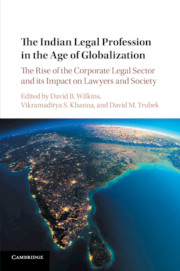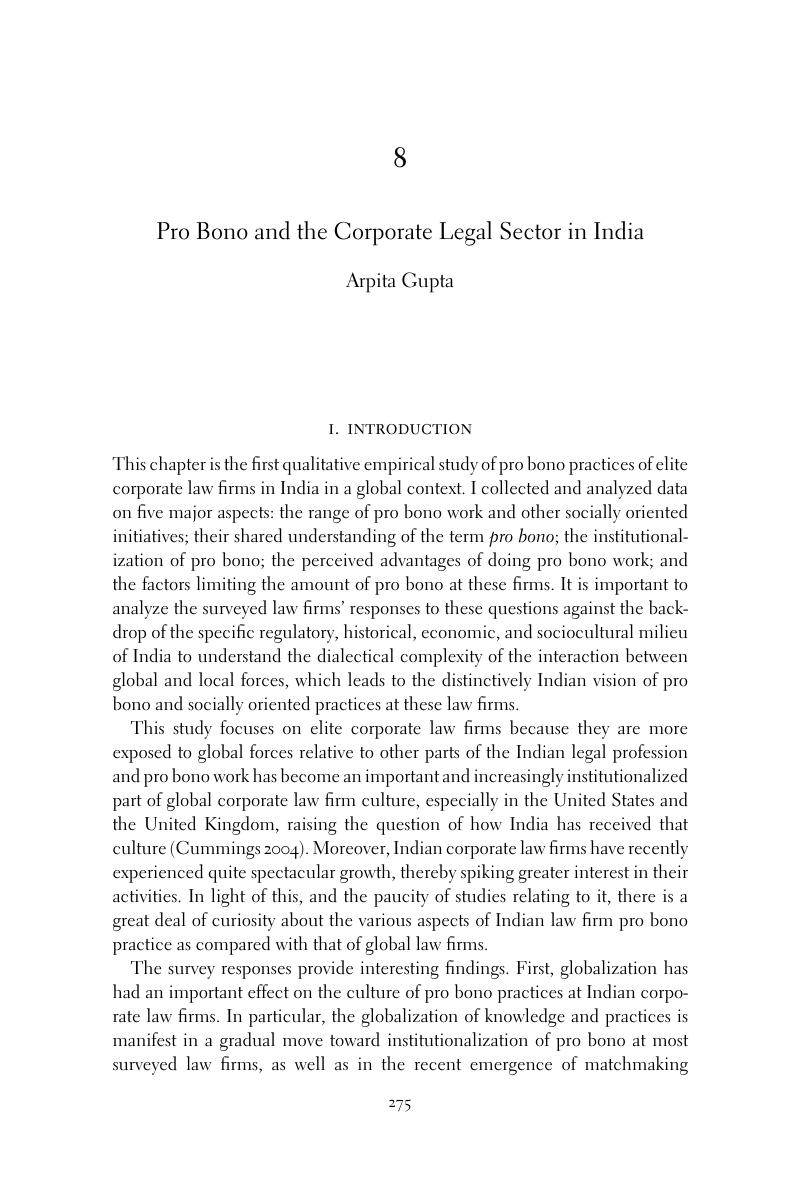 The Indian Legal Profession in the Age of Globalization
The Indian Legal Profession in the Age of Globalization Book contents
- The Indian Legal Profession in the Age of Globalization
- The Indian Legal Profession in the Age of Globalization
- Copyright page
- Dedication
- Contents
- Contributors
- Acknowledgments
- Section I Setting the Stage
- Section II The Growth of the Corporate Core
- Section III New Actors and Functions within the Corporate Core
- 6 Being Your Own Boss: The Career Trajectories and Motivations of India's Newest Corporate Lawyers
- 7 Women in India's “Global” Law Firms: Comparative Gender Frames and the Advantage of New Organizations
- 8 Pro Bono and the Corporate Legal Sector in India
- 9 How India's Corporate Law Firms Influence Legal, Policy, and Regulatory Frameworks
- Section IV Regulation and Foreign Competition
- Section V Old Lawyers, New Lawyers, and Transforming Roles
- Section VI Legal Education
- Section VII Capacity Building
- Index
- References
8 - Pro Bono and the Corporate Legal Sector in India
from Section III - New Actors and Functions within the Corporate Core
Published online by Cambridge University Press: 25 May 2017
- The Indian Legal Profession in the Age of Globalization
- The Indian Legal Profession in the Age of Globalization
- Copyright page
- Dedication
- Contents
- Contributors
- Acknowledgments
- Section I Setting the Stage
- Section II The Growth of the Corporate Core
- Section III New Actors and Functions within the Corporate Core
- 6 Being Your Own Boss: The Career Trajectories and Motivations of India's Newest Corporate Lawyers
- 7 Women in India's “Global” Law Firms: Comparative Gender Frames and the Advantage of New Organizations
- 8 Pro Bono and the Corporate Legal Sector in India
- 9 How India's Corporate Law Firms Influence Legal, Policy, and Regulatory Frameworks
- Section IV Regulation and Foreign Competition
- Section V Old Lawyers, New Lawyers, and Transforming Roles
- Section VI Legal Education
- Section VII Capacity Building
- Index
- References
Summary

- Type
- Chapter
- Information
- The Indian Legal Profession in the Age of GlobalizationThe Rise of the Corporate Legal Sector and its Impact on Lawyers and Society, pp. 275 - 306Publisher: Cambridge University PressPrint publication year: 2017


